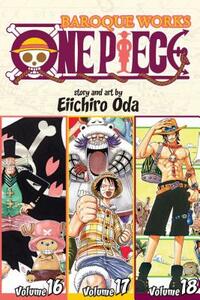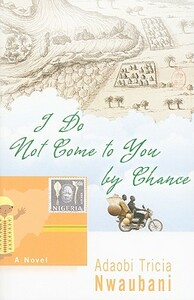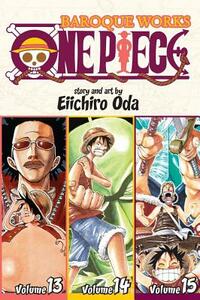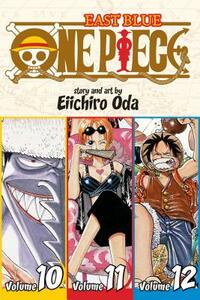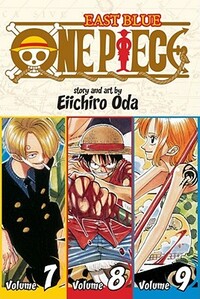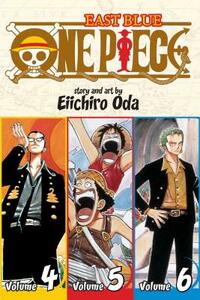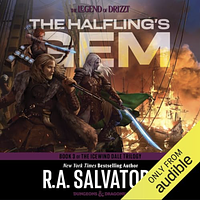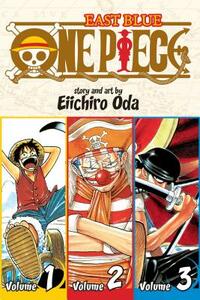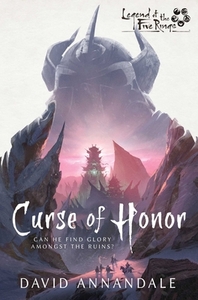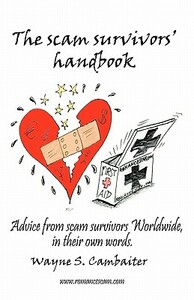You need to sign in or sign up before continuing.
Take a photo of a barcode or cover
vimcenzo's reviews
128 reviews
adventurous
emotional
hopeful
sad
medium-paced
Plot or Character Driven:
Character
Strong character development:
Yes
Loveable characters:
Yes
Diverse cast of characters:
Yes
Flaws of characters a main focus:
Complicated
The parts with Tony Tony Chopper’s absolutely crushing backstory are stellar, the rest not so much. Was really bored in the second half.
dark
emotional
reflective
sad
tense
medium-paced
Plot or Character Driven:
Character
Strong character development:
Yes
Loveable characters:
No
Diverse cast of characters:
Complicated
Flaws of characters a main focus:
Yes
The heel-turn in this book is stunning. The protagonist becomes so abhorrent and unsympathetic and alienates the reader thoroughly. You can’t ever judge a book by its cover. From the soft whites and the quaint design, I expected this was going to be a plucky little coming-of-age thingy about Kingsley having all sorts of bad things happen to him, but by golly he hikes up his pants and proves the bad guy wrong and makes his dad proud.
Noooooooope. Kingsley’s just the Joker. Saul Goodman but with zero charm. The amount of self-delusion, rationalization, and just casual zero-empathy cruelty that Kingsley engages in is astonishing—and as someone who researches scams, a lot of his excuses are the kind of dogshit that IRL scammers tell anyone who confronts them as well as themselves. That level of authenticity makes this book worth talking about. It has a similar arc to Richard III right down to the dénouement—not to spoil too much, but justyeah, asshole, you thought your dumbass uncle running for a prolific office and flashing his cash every which way wasn’t gonna get his ass eventually? “oh, boohoo, if it isn’t the consequences of my own actions, let me get another hooker and still try to get my ex back.” Fuckin’ blow me, Kingsley. I hated this character, but in a great way that was clearly the author deftly setting them up as scum. The ending is downright chilling with how evil Kingsley becomes.
Now my issues with the book have to do with culture shock, I think. It’s never not awkward hearing a grown-ass man say “mummy” and “daddy” unflinchingly. And some phrases just feel a bit awkward on the tongue and I feel are the result of some transliterated brogue that didn’t quite stick the landing. There are also some highly predictable foreshadows, and when compared to the deft parallels the author makes between Cash Daddy and what Kingsley eventually becomes, it’s a bit disappointing that the deft writing is not 100% present throughout. This does cost the novel some points, but it’s so well-written that to not hold it to such a standard would be to insult it.
While I don’t think this is one of the best books I’ve read in 2025, I most certainly think it was one of the most fun.
Noooooooope. Kingsley’s just the Joker. Saul Goodman but with zero charm. The amount of self-delusion, rationalization, and just casual zero-empathy cruelty that Kingsley engages in is astonishing—and as someone who researches scams, a lot of his excuses are the kind of dogshit that IRL scammers tell anyone who confronts them as well as themselves. That level of authenticity makes this book worth talking about. It has a similar arc to Richard III right down to the dénouement—not to spoil too much, but just
Now my issues with the book have to do with culture shock, I think. It’s never not awkward hearing a grown-ass man say “mummy” and “daddy” unflinchingly. And some phrases just feel a bit awkward on the tongue and I feel are the result of some transliterated brogue that didn’t quite stick the landing. There are also some highly predictable foreshadows, and when compared to the deft parallels the author makes between Cash Daddy and what Kingsley eventually becomes, it’s a bit disappointing that the deft writing is not 100% present throughout. This does cost the novel some points, but it’s so well-written that to not hold it to such a standard would be to insult it.
While I don’t think this is one of the best books I’ve read in 2025, I most certainly think it was one of the most fun.
adventurous
lighthearted
fast-paced
Plot or Character Driven:
Character
Strong character development:
No
Loveable characters:
Yes
Diverse cast of characters:
Yes
Flaws of characters a main focus:
No
I liked the giants but really not much else. Painfully mediocre, this whole threefer.
adventurous
lighthearted
fast-paced
Plot or Character Driven:
Character
Strong character development:
N/A
Loveable characters:
Yes
Diverse cast of characters:
Yes
Flaws of characters a main focus:
No
It’s whatever. It is what it is. By comparison to the animé, I appreciate how much pointless filler was actually not in the original text for me to slog through. The action’s quick and gets to the point quickly.
This also introduces one of my favorite dynamics going forward, which is the complicated relationship between Sergeant Tashigi (who is another one of my favorites) and Zoro.
Otherwise nothing to write home about. The the moment of kismet that saves Luffy is pretty cool, I suppose.
This also introduces one of my favorite dynamics going forward, which is the complicated relationship between Sergeant Tashigi (who is another one of my favorites) and Zoro.
Otherwise nothing to write home about. The the moment of kismet that saves Luffy is pretty cool, I suppose.
adventurous
emotional
sad
fast-paced
Plot or Character Driven:
Character
Strong character development:
Yes
Loveable characters:
Yes
Diverse cast of characters:
Yes
Flaws of characters a main focus:
No
I wasn’t as into this one (these three) because things were much more toned down here. You see a clear model for Nami’s modus operandi, though, and that’s pretty cool. These volumes just have a much more emotional bent to them that have very decisive, swift payoffs because of the steadfast heroism the protagonists have as far as helping those in need—especially a friend. Reading Luffy saying “Okay” after a friend begs them simply by saying “Help” was an amazing note to end on.
adventurous
funny
lighthearted
fast-paced
Plot or Character Driven:
A mix
Strong character development:
No
Loveable characters:
Yes
Diverse cast of characters:
Yes
Flaws of characters a main focus:
No
Things improve from the last book (the last three-in-one, specifically) very demonstrably. Having watched the anime up to a point, I ended up appreciating a lot of the central traits of the characters a lot more. They are explained in these three volumes, and it's not exactly a spoiler so much as "established early on."
Usopp is one of my favorite characters in the series, and it's here that his value is established. Zolo and Luffy have pure physical strength on their side, so really, any of their struggles just boil down to overpowering the opponent martially. Usopp, however, is just a man. He is a savant with a slingshot, but that's more of a trick than a genuine contribution when one considers guns are involved. As a result, any of Usopp's moves, such asconvincing the boys to escape with Kaya but framing it as an order that will not make them seem cowardly are centered in him being crafty, and they're often the best-written parts of the series since he has to use the environment, his own smarts, or even the enemy's own capabilities against them.
Nami's relationship to sexuality is a nice change of pace, which means a lot nowadays considering that this is what people always think of when considering anime as a whole. One Piece gets brought up in the same sentence as Dragon Ball or Naruto. When Nami sees an opportunity to leverage her appearance to turn a situation to her favor, she takes it. Here it happens canonicallyas when she uses Sanji being smitten to wrangle a free meal out of him as well as non-canonically where a fan letter asks for her measurements, but she only wants to give up that information for profit . This isn't until the later volumes (presumably, because I'm going off information from the anime) but all of this is not to say that she'd be willing to sell herself and has a level of personal pride/shame to not go through with such a thing. I just appreciate that overall, it's not the tired anime trope of a timid girl character who gets sexualized and then freaks out over anyone ogling her or needing to use feminine wiles to get into or out of a situation.
Of note, I also liked Zolo's encounter withHawkeye in this one, establishing a new long-term rivalry that he must strive towards overcoming . Overall, there's a lot of information put into these volumes that are both character-establishing as well as long-term investments that you know are going to come back once characters have gone through a fair bit of development and growth. Very cool to be seeing this very early on.
Usopp is one of my favorite characters in the series, and it's here that his value is established. Zolo and Luffy have pure physical strength on their side, so really, any of their struggles just boil down to overpowering the opponent martially. Usopp, however, is just a man. He is a savant with a slingshot, but that's more of a trick than a genuine contribution when one considers guns are involved. As a result, any of Usopp's moves, such as
Nami's relationship to sexuality is a nice change of pace, which means a lot nowadays considering that this is what people always think of when considering anime as a whole. One Piece gets brought up in the same sentence as Dragon Ball or Naruto. When Nami sees an opportunity to leverage her appearance to turn a situation to her favor, she takes it. Here it happens canonically
Of note, I also liked Zolo's encounter with
adventurous
medium-paced
Plot or Character Driven:
A mix
Strong character development:
No
Loveable characters:
No
Diverse cast of characters:
Yes
Flaws of characters a main focus:
No
Look, there’s no reason to beat around the bush with this, it’s a soulless product made to sell products. These aren’t really emotional stories with characters to get invested in, it’s to demonstrate various playable classes and basic archetypes of character one can play without much depth or exploration. If you compare the Forgotten Realms with, say, Star Wars, then you start to realize that Star Wars had a massive world ripe for exploration and lore you wanted to discover. The Forgotten Realms never fit that bill. Characters treat every locale as a rest stop before summarily moving onto the next and you can tell there’s going to be a happily ever after without taking any risks in the narrative whatsoever. It’s a little disheartening just how soulless it is when you think about how modern DnD is farcical compared to the halfway serious lore and stock the writers placed into this world, but it’s almost kept vague to not let players feel like their ambitions don’t matter. But they need heroes and legends—yet this is the best they could come up with? It’s boring and basic, and the legendary status of Drizzt Do’Urden feels less like a well-earned heroic mantle and more like an obligation upheld by DnD fans who don’t realize they’re trying to be thorough in cataloguing the history of the game rather than earnestly recognizing whether they enjoyed/liked a character or not.
adventurous
funny
lighthearted
fast-paced
Plot or Character Driven:
Character
Strong character development:
No
Loveable characters:
Yes
Diverse cast of characters:
Yes
Flaws of characters a main focus:
Complicated
(Note: My opinion might be influenced watching the animé. Relative to the manga, I got to just before Water Seven began.)
This has been pretty mediocre as a beginning. Can I say that? It’s not that the characters are bad. Luffy’s unerring optimism is very pleasant. Zoro’s stoicism and ambition (and overall coolness) would definitely appeal to young boys who want to challenge themselves. Nami, as yet, doesn’t do much. Knowing information from the show has me tolerate a lot of these same beats, but I mean “tolerate” with a lot of weight.
Much like in the show, I got more invested once I met Usopp, who is my favorite character. It’s hard to know if that admiration is acting retroactively because of the eventual developments, but as it stands it was pleasant to see him starting out.
A lot of animé bs like reaction shots are very charming because they have a more eyepopping Western cartoon style instead of something generic. The art overall is pretty decent.
Now the bad shit: it’s pretty obvious this is written for kids, but with plenty of adult fans I think it’s only fair not to pull punches. It gets egregious as all hell with the introduction ofDjango , who laboriously, stupidly, and out loud explains a three year plan to the villain who orchestrated it, really for the purpose and convenience of having the main character know it. The series so far has a bunch of little contrivances like that to keep the plot moving forward, but that was the most egregious it felt, either because I was finally getting into it or because it was closest to the end of the book so it’s the freshest on my mind.
Either way, I’ll keep reading.
Comparing to Dragonball, which I read earlier in the year: the childishness and simplicity was a charming little bookend to the end of a workday, while this is more of a tiring endurance match to get through it and move on. There’s really not much savoring to be done if you don’t like a storyline, and if you do like a current storyline, you blaze through to see what happens next. Lose-lose, almost! 😭 Either way, I guess it moves fast enough and the characters don’t suck. Things could be a lot worse.
This has been pretty mediocre as a beginning. Can I say that? It’s not that the characters are bad. Luffy’s unerring optimism is very pleasant. Zoro’s stoicism and ambition (and overall coolness) would definitely appeal to young boys who want to challenge themselves. Nami, as yet, doesn’t do much. Knowing information from the show has me tolerate a lot of these same beats, but I mean “tolerate” with a lot of weight.
Much like in the show, I got more invested once I met Usopp, who is my favorite character. It’s hard to know if that admiration is acting retroactively because of the eventual developments, but as it stands it was pleasant to see him starting out.
A lot of animé bs like reaction shots are very charming because they have a more eyepopping Western cartoon style instead of something generic. The art overall is pretty decent.
Now the bad shit: it’s pretty obvious this is written for kids, but with plenty of adult fans I think it’s only fair not to pull punches. It gets egregious as all hell with the introduction of
Either way, I’ll keep reading.
Comparing to Dragonball, which I read earlier in the year: the childishness and simplicity was a charming little bookend to the end of a workday, while this is more of a tiring endurance match to get through it and move on. There’s really not much savoring to be done if you don’t like a storyline, and if you do like a current storyline, you blaze through to see what happens next. Lose-lose, almost! 😭 Either way, I guess it moves fast enough and the characters don’t suck. Things could be a lot worse.
adventurous
emotional
mysterious
reflective
tense
medium-paced
Plot or Character Driven:
Character
Strong character development:
Complicated
Loveable characters:
Complicated
Diverse cast of characters:
Yes
Flaws of characters a main focus:
Yes
On its surface, there’s a lot of things to enjoy about this book.
For starters, I think it’s a very difficult setting to swallow because of it being an Eastern-inspired setting and story as written by white folks. This should not be an issue—it is by the same logic that, say, Vinland Saga is allowed to exist. But the fact remains that the last major appearance of note when it came to the Rokugan setting was in the book quite literally titled Oriental Adventures—which, in spite of its earnest efforts, still brought the setting down to a swathe of well-intentioned stereotypes.
Still, the story in Curse of Honor is told without these problems, in my opinion. There are no forced honorifics or stuck-in Japanese words to scramble for authenticity—only what is necessary. It is told without these problems a respect for the culture and does not alienate the reader nor the culture in its presentation by making everyone some honor-possessed beings. Everyone in this book is distinctly human, living in the society that they do, and they have to balance their wants and desires with that society. My rule of thumb is that I like a story best when characters do what I would do if I were in their shoes; if they don’t, then they need to be well-characterized enough or the situation needs to be concretely established enough for me to empathize with the character’s decisions. Except for the daimyō towards the end of the book, this is mostly followed to a T.The daimyō by the end becomes emotional and driven by emotion, when all throughout she was anything but, even when faced with stress. This was the only time this was really flouted.
Now here’s where things get political, and it is a spoiler.I don’t mind a homosexual character. In my mind, Game of Thrones used homosexuality openly and had interesting characters as a result of it. My suspension of disbelief, however, starts to wane whenever feudal societies in particular just handwave the whole affair away. It delegitimizes those struggles and tokenizes them for shareholders. And then other factors start to creep in that cast doubt on everything. The old Rokugan had female samurai, and that they were present has no impact in the story. Then I noticed that only male samurai died in the story—the one female death is a cataclysmic event in the narrative. Over the course of the story, Haru starts out making mistakes that are sympathetic, but by the end is a blubbering buffoon and mama’s boy with a pathetic crush on a disinterested lesbian samurai, when before he had other motives. It all feels cynically made, and like pointing it out would ultimately mark one as homophobic. I liked nearly all the characters at first, but as the end drew near I only liked Doreni, who had to learn how to set aside his ehgo and his loss to remember his duty to Crab Clan.
In spite of all this, I have ordered the next two books in the series. I was stunned to learn the writer of this book was deeply entrenched in writing novels for the 40K franchise, which aside from the Ork books have been an exhausting slog to get through and it’s why I’ve been bummed out on trying new fantasy/sci-fi franchise books. Thieves World, Wheel of Time, 40K, and even Lord of the Rings have left me burnt out, but the impressive complexity of Curse of Honor made me excited for Rokugan and got me to like the setting. We’ll see what comes next, and I hope I grow to appreciate this setting even more.
For starters, I think it’s a very difficult setting to swallow because of it being an Eastern-inspired setting and story as written by white folks. This should not be an issue—it is by the same logic that, say, Vinland Saga is allowed to exist. But the fact remains that the last major appearance of note when it came to the Rokugan setting was in the book quite literally titled Oriental Adventures—which, in spite of its earnest efforts, still brought the setting down to a swathe of well-intentioned stereotypes.
Still, the story in Curse of Honor is told without these problems, in my opinion. There are no forced honorifics or stuck-in Japanese words to scramble for authenticity—only what is necessary. It is told without these problems a respect for the culture and does not alienate the reader nor the culture in its presentation by making everyone some honor-possessed beings. Everyone in this book is distinctly human, living in the society that they do, and they have to balance their wants and desires with that society. My rule of thumb is that I like a story best when characters do what I would do if I were in their shoes; if they don’t, then they need to be well-characterized enough or the situation needs to be concretely established enough for me to empathize with the character’s decisions. Except for the daimyō towards the end of the book, this is mostly followed to a T.
Now here’s where things get political, and it is a spoiler.
In spite of all this, I have ordered the next two books in the series. I was stunned to learn the writer of this book was deeply entrenched in writing novels for the 40K franchise, which aside from the Ork books have been an exhausting slog to get through and it’s why I’ve been bummed out on trying new fantasy/sci-fi franchise books. Thieves World, Wheel of Time, 40K, and even Lord of the Rings have left me burnt out, but the impressive complexity of Curse of Honor made me excited for Rokugan and got me to like the setting. We’ll see what comes next, and I hope I grow to appreciate this setting even more.
emotional
informative
sad
fast-paced
It is a compilation of people's stories and experiences with scammers, but it's very disorganized. Often, I don't know whether it is an anecdote or advice to avoid scammer until I'm a paragraph or two in. This could have been a bit more organized, but going lower than a 4 feels harsh. This is a topic that is a passion of mine, and it has fairly adequately covered things for both newcomers and victims. Or "survivors", as the book is quick to correct.
